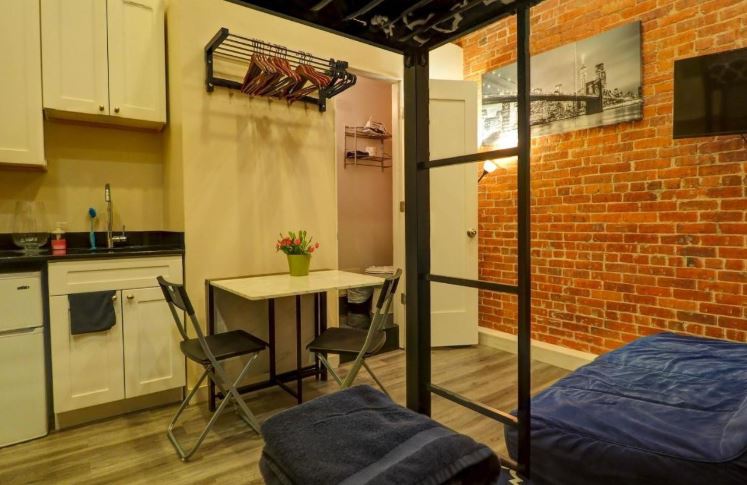The allure of German academia often comes with a hefty price tag, particularly when it comes to housing. Finding affordable and suitable accommodation can quickly turn your dream into a logistical nightmare. But fear not, aspiring scholars! This comprehensive guide will equip you with the knowledge and strategies to navigate the German housing market and secure cheap accommodations for international students in Germany.
We’ll delve into a plethora of options, from the traditional student dormitories to the vibrant world of “Wohngemeinschaften” (WGs) – those quintessential German shared apartments. We’ll guide you through the intricacies of online platforms, university resources, and the art of negotiation. Whether you’re a budget-conscious backpacker or a seasoned traveler, this guide will empower you to find a home away from home that fits your needs and your wallet.
Benefits of Living in Germany as International Students
Germany has become a top destination for international students, offering a unique blend of academic excellence, cultural richness, and economic opportunities. Here are some key benefits of studying in Germany:
-
World-Class Education
- Renowned Universities: Germany boasts numerous universities ranked among the best in the world, offering a wide range of degree programs in various fields.
- High-Quality Education: German universities are known for their rigorous academic standards, practical approach to learning, and emphasis on research and innovation.
- Affordable Tuition: Many public universities in Germany offer tuition-free education, making it an attractive option for students from around the world.
-
Cultural Immersion
- Rich History and Culture: Germany is steeped in history and culture, offering a unique opportunity to explore historical landmarks, museums, and vibrant cultural events.
- Multicultural Society: With a diverse population, Germany provides a multicultural environment where students can interact with people from different backgrounds, broaden their horizons, and develop valuable intercultural communication skills.
- Easy Travel: Germany’s central location in Europe makes it an excellent base for exploring other European countries and experiencing diverse cultures.
-
Economic Opportunities
- Strong Economy: Germany has a strong economy with ample job opportunities, particularly in sectors like engineering, technology, and research.
- Post-Study Work Visa: International students can avail themselves of the post-study work visa, allowing them to gain valuable work experience in Germany after graduation.
- Excellent Career Prospects: A German degree is highly regarded worldwide, opening doors to promising career opportunities in various sectors.
-
Affordable Living
- Lower Cost of Living: Compared to other major study destinations, Germany offers a relatively affordable cost of living, making it easier for students to manage their finances.
- Efficient Public Transportation: Germany has an efficient and affordable public transportation system, making it easy to get around without relying on expensive taxis or car ownership.
- Student Discounts: Students can avail themselves of various discounts on public transportation, cultural events, and other services.
-
Personal Growth
- Independence and Self-Reliance: Studying abroad fosters independence, self-reliance, and adaptability, valuable skills that will benefit students throughout their lives.
- Language Learning: Learning German can be a rewarding experience, opening up new career opportunities and enhancing cultural understanding.
- Personal and Professional Development: Studying in Germany provides a unique opportunity for personal and professional growth, allowing students to develop valuable skills and experiences that will benefit them in their future endeavors.
By choosing to study in Germany, international students can gain a world-class education, immerse themselves in a rich culture, and embark on a rewarding journey of personal and professional growth.
Which is the Cheapest German City for international students?
“Leipzig” consistently ranks as one of the most affordable German cities for international students.
Here’s why:
- Lower Cost of Living: Compared to major cities like Munich or Berlin, Leipzig boasts significantly lower rent prices and overall living expenses.
- Thriving Student Life: With a large student population, Leipzig offers a vibrant and affordable social scene.
- Excellent Public Transportation: The city has an efficient and affordable public transportation system, making it easy to get around without relying on expensive taxis or car ownership.
- Cultural Hub: Leipzig is a cultural gem, known for its music scene, historical landmarks, and artistic community, all of which can be enjoyed without breaking the bank.
While Leipzig offers a more budget-friendly option compared to other major German cities, it’s important to remember that “cheap” is relative. Factors like your personal spending habits and accommodation choices will still significantly impact your overall expenses.
Other Affordable Cities:
While Leipzig often tops the list, other cities in Germany also offer relatively low living costs for students:
- Dresden: Known for its stunning architecture and cultural heritage, Dresden provides a good balance of affordability and cultural richness.
- Halle (Saale): This historic city offers a more relaxed pace of life and significantly lower living costs compared to larger German cities.
- Magdeburg: With a strong industrial heritage and a growing student population, Magdeburg is an up-and-coming city with affordable living options.
Remember to research specific neighborhoods within these cities, as costs can vary significantly. Consider factors like proximity to your university, access to public transportation, and the overall atmosphere of the neighborhood when making your decision.
How to Secure Cheap Accommodations for International Students in Germany
Studying abroad in Germany is a dream for many, but finding affordable housing can be a daunting task. This guide will equip you with the knowledge and strategies to navigate the German housing market and secure cheap accommodations.
-
Start Your Search Early
The demand for affordable housing in Germany is high, especially in popular student cities. Starting your search early gives you a significant advantage. Begin your search at least three to six months before your planned arrival to ensure a wider selection of options.
-
Utilize Online Platforms
Several online platforms can assist you in finding affordable accommodations:
- WG-Gesucht: A popular platform for finding flatshares (“Wohngemeinschaften” or WGs) in Germany.
- Immobilienscout24: A comprehensive platform listing apartments, houses, and rooms for rent.
- Studenten-WG.de: A platform specifically for students seeking flatshares.
- UniversityRooms: Specializes in student accommodation, offering on-campus dorms and private apartments.
-
Explore University Resources
Your university is a valuable resource in your housing search.
- Housing Offices: Most universities have housing offices that provide information on available student housing options, both on-campus and off-campus.
- Studentenwerk: The German student union often manages on-campus dorms and can assist with finding affordable housing options.
- University Partnerships: Some universities have partnerships with housing providers offering discounted rates to students.
-
Consider Shared Apartments (WGs)
WGs are a popular and affordable option for students in Germany. Sharing living expenses with roommates can significantly reduce your housing costs.
- WG-Gesucht and Studenten-WG.de are excellent platforms for finding WGs.
- Consider factors like location, room size, and roommate compatibility when choosing a WG.
-
Look for Sublets
Subletting can be a short-term solution, especially if you haven’t secured permanent housing upon arrival.
- Websites like Zweitwohnen offer listings for subletting rooms or apartments.
- Facebook groups and online forums can also be valuable resources for finding sublets.
-
Be Prepared to Negotiate
Negotiating rent is common in Germany. Don’t hesitate to negotiate with landlords or roommates to get a better deal.
Other Additional Tips
- Consider living outside the city center: Rents are typically lower in the suburbs.
- Be flexible with your move-in date: Flexibility can increase your options and potentially lead to better deals.
- Research local market rates: Understanding average rent prices in your desired area can help you negotiate effectively.
- Network with other students: Fellow students can provide valuable insights and recommendations for finding affordable housing.
By following these tips and strategies, you can increase your chances of securing cheap and suitable accommodations for your studies in Germany. Remember, thorough research, early planning, and a proactive approach are key to finding the perfect place to call home during your academic journey.
Frequently Asked Questions (FAQs)
Let’s now take a look at some of the frequent questions people ask about how to secure cheap accommodations for international students in Germany:
Q: What should I expect when attending a flat viewing (Besichtigung)?
A: Dress neatly, arrive on time, and introduce yourself confidently. Be prepared to ask questions about the apartment, amenities, and living arrangements with potential roommates (if applicable). A good first impression can be crucial, so show genuine interest and be polite.
Q: What documents do I need to secure student accommodation?
A: Generally, you’ll need your passport, visa (if applicable), proof of income/financial aid, and potentially a letter of enrollment.
Q: I’m on a tight budget. Are there any additional tips for finding affordable housing?
A: Absolutely! Here are some pro tips:
- Consider cities in Eastern Germany or smaller university towns for generally lower living costs.
- Be flexible with location, room size, and amenities within your budget.
- Learn some basic German housing phrases to make a positive impression.
- Network with current students for insider tips and potential WG connections.
Q: What are some red flags to watch out for when searching for housing?
A: Be wary of listings with unrealistically low rent or those pressuring immediate payment without viewing the place. Always use reputable platforms and trust your gut feeling.
Q: Is it common to negotiate rent in Germany?
A: Negotiation, especially for private rentals or WGs, is quite common. Do your research beforehand to understand average rental prices in your target area. This will give you a strong foundation for discussing rent with the landlord or potential flatmates.
Q: What are some alternative student housing options in Germany?
A: If traditional dorms or WGs aren’t your style, consider exploring options like:
- Student cooperatives (Wohnprojekte): These offer affordable shared living arrangements with a strong sense of community.
- Homestay programs: Offered by some universities, homestays connect you with local families for a unique cultural experience and potentially lower rent.
- Youth hostels: While not a long-term solution, hostels like those from the German Youth Hostel Association (DJH) can provide temporary accommodation while you continue your housing search.
Q: What should I do if I feel overwhelmed by the housing search?
A: Don’t panic! Take a deep breath and remember that many international students go through this process. Utilize the resources available, reach out to your university for guidance, and connect with other students online or in forums. There’s a strong international student community in Germany, and chances are someone has been in your shoes before and can offer support or advice.
Q: When should I start searching for student accommodation in Germany?
A: Ideally, you should begin your search 3-4 months before your arrival in Germany, especially if you’re targeting popular cities. The earlier you start, the more options you’ll have and the higher your chances of securing affordable housing.
See More Details
Conclusion
To secure cheap accommodations for international students in Germany might seem daunting at first, but with the right approach and resources, you can secure your perfect haven. This guide has equipped you with the knowledge to navigate the housing landscape, explore different options, and utilize pro tips to become a master of the German student housing hunt. Remember, a little planning, resourcefulness, and a positive attitude go a long way. Now, go forth and conquer your German wohnungssuche adventure!

